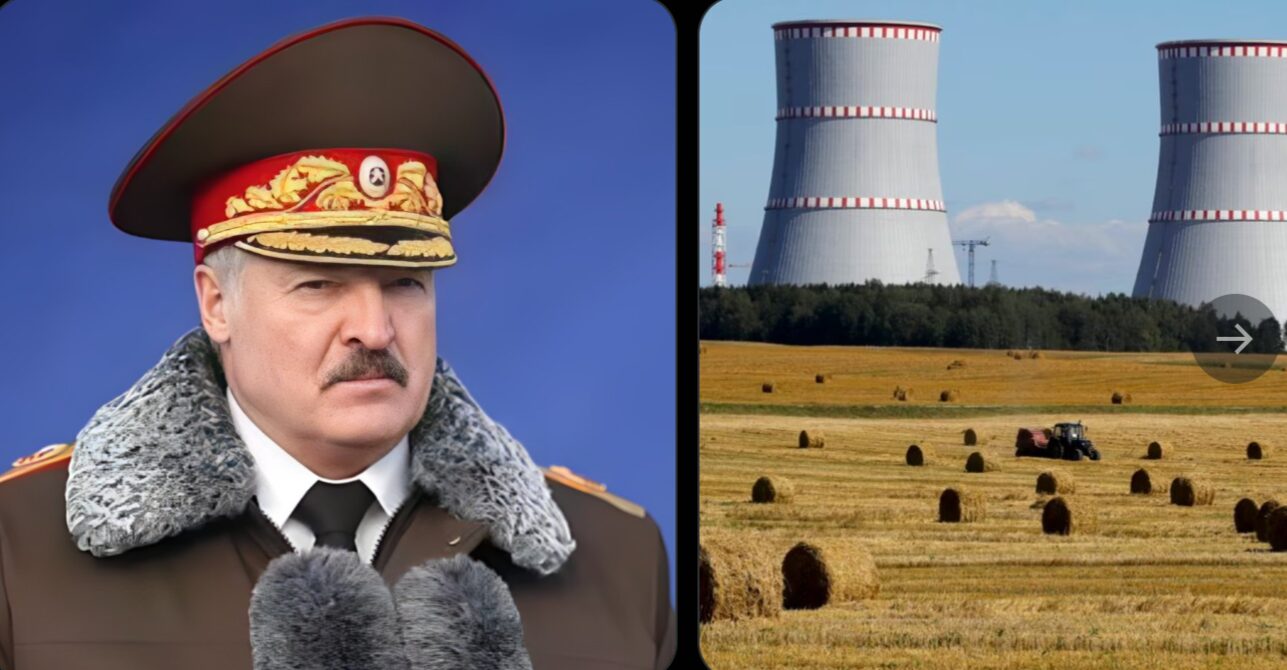President Lukashenko Requested Russia’s Help to Build Another Nuclear Power Plant in Belarus
In a bold move to strengthen Belarus’s energy infrastructure, President Alexander Lukashenko has formally requested Russia’s assistance in constructing another nuclear power plant within the country. This proposal signals Belarus’s continued reliance on Russia for critical energy projects and reflects the ongoing political and economic alignment between the two nations. The announcement comes amid growing concerns over energy security in Europe, as well as Belarus’s long-standing efforts to modernize its energy sector, which remains heavily dependent on Russia for both energy resources and technology.
The request for Russia’s help to build an additional nuclear power plant underscores Lukashenko’s desire to ensure the long-term energy stability of Belarus, while also reinforcing the country’s strategic partnership with Russia. The decision is expected to have wide-ranging implications not only for Belarus’s domestic energy needs but also for its geopolitical positioning in Eastern Europe, particularly as the region grapples with energy security challenges and the shifting dynamics of global energy markets.
Belarus’s Energy Sector: A Dependence on Russia
Belarus has historically relied on Russia for much of its energy supply, particularly oil and natural gas. Over the years, the Belarusian government has worked to diversify its energy sources to reduce dependence on Russian imports. However, despite these efforts, Russia continues to play a dominant role in the country’s energy sector, including the provision of both raw materials and the technology required for large-scale energy infrastructure projects.
The construction of a second nuclear power plant in Belarus is part of the government’s broader strategy to modernize the country’s energy infrastructure and reduce its reliance on imported fossil fuels. Belarus has already taken steps toward increasing its energy independence by commissioning the Astravets Nuclear Power Plant, which was launched in 2020 with Russian support. The Astravets facility is expected to play a key role in helping the country meet its electricity needs while reducing its reliance on gas and coal imports.
However, the demand for electricity in Belarus continues to grow, and President Lukashenko has emphasized the need for a second nuclear power plant to ensure that the country has sufficient capacity to meet both current and future energy needs. Given Belarus’s geographical location and reliance on Russian energy, building another nuclear power plant in collaboration with Russia appears to be a logical step in the country’s long-term energy strategy.
The Strategic Importance of Nuclear Power in Belarus
For Belarus, nuclear power offers a significant opportunity to address both energy security and economic growth. As the world increasingly moves toward cleaner energy sources, nuclear power is seen as an essential part of Belarus’s strategy to transition away from fossil fuels while still meeting its energy demands. Nuclear energy is viewed as a stable and reliable source of electricity that can help reduce the country’s dependence on coal, oil, and natural gas.
Moreover, nuclear power offers Belarus the ability to produce a large and consistent supply of energy, which is critical for a growing economy. The country has been focused on industrial growth, and reliable electricity is a key factor in supporting that development. By building another nuclear power plant, Belarus can potentially reduce its energy costs over time, enhance its energy independence, and minimize its vulnerability to price fluctuations in global energy markets.
Furthermore, the cooperation between Belarus and Russia in the construction of nuclear power plants has broader political implications. Belarus’s close relationship with Russia is underscored by a series of agreements and joint ventures that have strengthened their economic and political ties. By seeking Russia’s assistance in building additional nuclear infrastructure, Lukashenko further solidifies his country’s alignment with Moscow and reaffirms the long-standing bond between the two nations.
The Role of Russia in Belarus’s Nuclear Power Plans
Russia has long been a key partner in Belarus’s nuclear energy development, providing both financial and technical support. The Russian state-owned company Rosatom, one of the world’s largest nuclear energy corporations, has played an essential role in the construction of the Astravets Nuclear Power Plant. Rosatom is also expected to be a major player in the development of the new nuclear facility, should the Belarusian government move forward with the proposal.
The close cooperation between Belarus and Russia on nuclear energy projects is a reflection of the strong strategic ties between the two nations, particularly in the energy sector. For Russia, the partnership with Belarus offers an opportunity to strengthen its influence in Eastern Europe and increase its presence in the global nuclear energy market. Russia has positioned itself as a leading supplier of nuclear technology, and the development of nuclear power plants in Belarus helps to solidify that role.
Additionally, the expansion of nuclear power in Belarus can be seen as part of Russia’s broader geopolitical strategy to maintain its dominance in the region’s energy markets. By providing Belarus with the necessary infrastructure and technology, Russia ensures that the country remains reliant on Russian technology and expertise for its energy needs, making Belarus less likely to seek energy partnerships with Western countries.
Environmental and Safety Considerations
While the potential for increased energy independence through nuclear power is appealing, the decision to build another nuclear power plant in Belarus also raises significant concerns regarding environmental safety and the risks associated with nuclear energy. Belarus has faced criticism from environmental groups and neighboring countries, particularly Lithuania, which is concerned about the proximity of the Astravets plant to its border. Environmentalists argue that nuclear power plants, if not properly managed, can pose serious risks to the environment and public health, especially in the event of an accident.
The environmental impact of nuclear energy has been a key point of debate in many countries, particularly following high-profile incidents such as the Chernobyl disaster in 1986, which occurred in nearby Ukraine. Although modern nuclear technology has improved significantly in terms of safety, critics of nuclear energy remain vocal in their opposition, citing the potential for catastrophic accidents and the long-term environmental impact of radioactive waste.
In response to these concerns, the Belarusian government has assured the public and international community that it is committed to implementing the highest safety standards in the construction and operation of its nuclear plants. Nonetheless, the safety of nuclear power plants remains a contentious issue, and Belarus will need to address these concerns effectively to avoid potential backlash both domestically and internationally.
Geopolitical Implications: Impact on Europe’s Energy Landscape
The construction of another nuclear power plant in Belarus with Russian assistance has significant geopolitical implications, especially within the context of Europe’s energy landscape. The European Union and the U.S. have been vocal in their concerns about the growing influence of Russia in the region, particularly in energy matters. The EU has already expressed reservations about the Astravets Nuclear Power Plant, citing safety and environmental concerns, and any new nuclear energy ventures in Belarus are likely to attract similar scrutiny.
Furthermore, the expansion of nuclear power in Belarus could deepen the country’s political and economic ties with Russia, at a time when tensions between Russia and Western countries continue to escalate. The U.S. and the EU have imposed sanctions on Russia in response to its actions in Ukraine and other geopolitical developments, and Belarus’s increasing reliance on Russian energy technology could further isolate it from Western markets and strengthen its relationship with Moscow.
For European nations, the growth of Belarus’s nuclear capabilities is a reminder of the broader challenges surrounding energy security and reliance on foreign energy suppliers. As Europe faces growing demands for energy diversification and security, the increasing role of Russia in supplying nuclear power technology to Belarus could raise questions about the future of energy policy in the region.
Conclusion: A New Chapter for Belarus’s Energy Future
President Lukashenko’s request for Russia’s help in building another nuclear power plant represents a significant step in Belarus’s quest for energy independence and modernization. The move highlights the close partnership between Belarus and Russia, particularly in the energy sector, and signals Belarus’s intent to secure its long-term energy future. While the benefits of nuclear power are clear in terms of energy security and economic growth, the decision also brings environmental and safety concerns, which will need to be addressed carefully.
As Belarus moves forward with its nuclear power ambitions, the geopolitical implications of such projects cannot be ignored. The increasing reliance on Russian technology in Belarus’s energy infrastructure may further isolate the country from the West and shift its political and economic trajectory closer to Moscow. The global energy landscape is changing rapidly, and Belarus’s role as a key player in Eastern Europe will continue to evolve as it navigates the complexities of energy security, international relations, and environmental responsibility.

















Post Comment